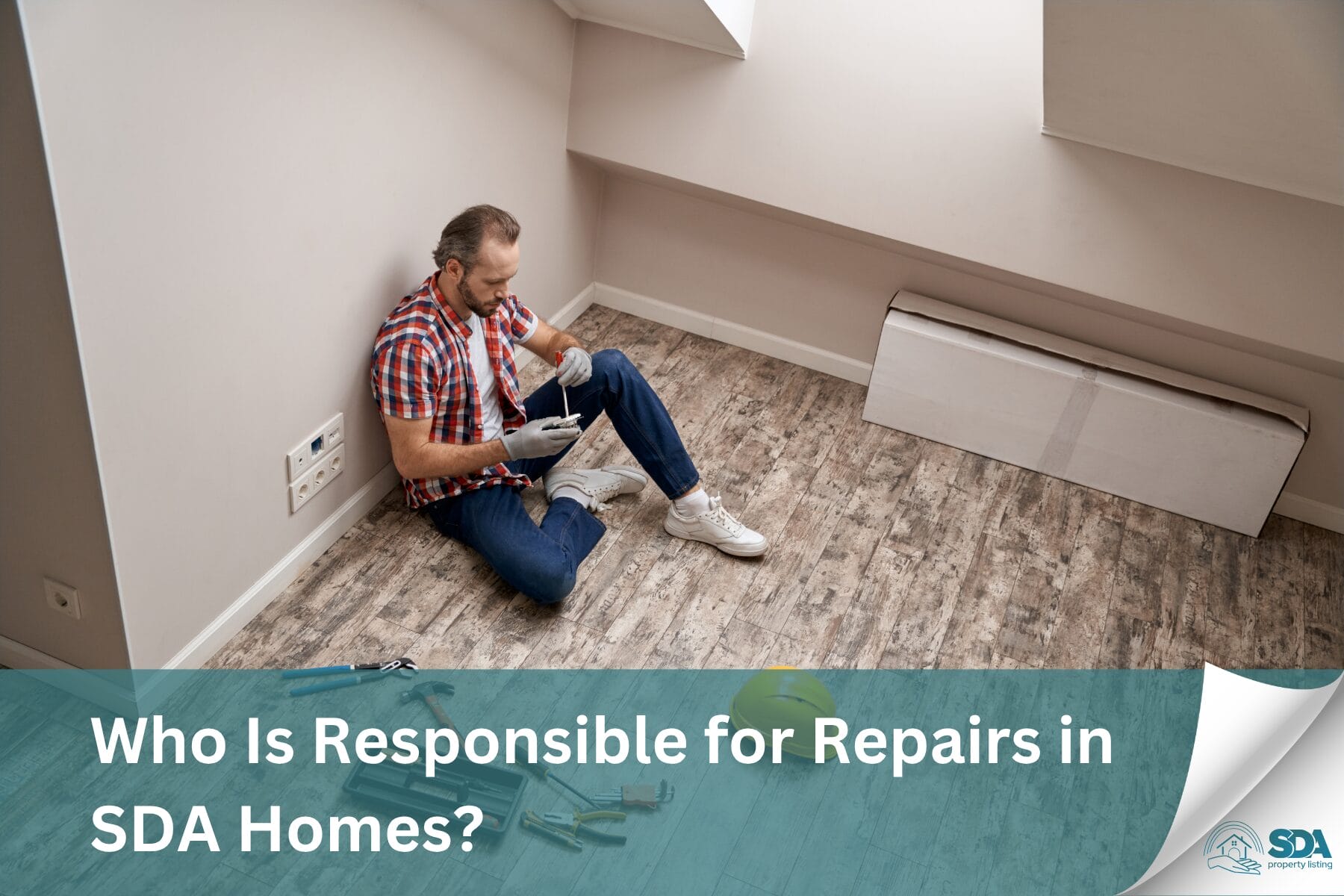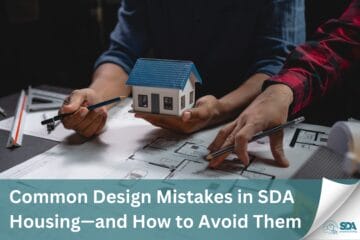
Who Is Responsible for Repairs in SDA? 6 Things Every Tenant Should Know
Who is responsible for repairs in SDA is a common question among SDA tenants, and understanding the answer helps protect your rights and safety.
A safe and well-maintained home is fundamental to comfort, security, and overall well-being, particularly for residents of Specialist Disability Accommodation (SDA).
Knowing where the responsibility for repairs lies within an SDA property enables tenants to assert their rights and maintain a secure living environment.
This article offers a comprehensive overview of repair obligations in SDA homes, equipping tenants with the knowledge to address maintenance concerns effectively.
What Constitutes Specialist Disability Accommodation?
Specialist Disability Accommodation (SDA) encompasses housing designed specifically for individuals with significant functional impairments or high support needs.
These residences are constructed to prioritise accessibility, independence, and safety. Legislation requires SDA providers to ensure that their properties remain safe, accessible, and suitable for the needs of tenants at all times.
Who Is Responsible for Repairs in SDA? Provider Responsibilities Explained
SDA providers bear a legal responsibility to uphold the property in good repair. Their obligations include, but are not limited to:
- Structural Repairs: Addressing any damage to the building’s structure, such as walls, roofs, or windows.
- Plumbing and Electrical Systems: Resolving issues including leaks, faulty wiring, or interruptions to power supply.
- Essential Fixtures: Repairing or replacing critical items such as locks, taps, and light switches.
- Urgent Repairs: Responding promptly to immediate hazards, including broken toilets, power outages, gas leaks, or fire risks.
It is essential that tenants promptly report any such issues to their provider. In circumstances requiring urgent repairs, providers are required to act without delay to restore safety and functionality to the home.
Tenant Responsibilities
Tenants also share in the responsibility for maintaining their living environment. These responsibilities include:
- Keeping the premises clean and orderly.
- Caring for personal possessions.
- Reporting maintenance concerns as soon as they become apparent.
Should damage arise as a result of a tenant’s actions—such as unauthorised modifications or incidents involving pets—the tenant may be required to cover the cost of repairs.
Importantly, tenants are not liable for normal wear and tear or for damage resulting from the use of necessary disability equipment. Maintaining detailed records, such as written notes or photographs when reporting issues, is advisable to ensure clear communication and resolve any future queries.
Understanding Urgent Repairs
Certain repairs are classified as urgent due to their immediate impact on health and safety. Examples include:
- Blocked or non-operational toilets.
- Loss of electricity or power.
- Gas leaks or fire hazards.
In these situations, SDA providers are obligated to respond without delay. Tenants should not be left waiting for extended periods when urgent repairs are required.
Addressing Common Misconceptions
A prevalent concern among tenants is the fear of eviction following a request for repairs. It is important to clarify:
- Myth: Requesting repairs may result in eviction.
- Fact: Tenants possess a legal right to request repairs, and providers are prohibited from evicting tenants on the grounds of legitimate maintenance requests. This protection is enshrined in both the Residential Tenancies Act and SDA guidelines.
Knowing Your Rights
Tenants residing in SDA homes are protected under the Residential Tenancies Act, which guarantees the right to a safe and well-maintained home. Providers are legally obliged to address necessary repairs. If non-urgent repairs remain unresolved within fourteen days of being reported, tenants may seek assistance from relevant authorities, such as Consumer Affairs Victoria.
Conclusion
Repairs within SDA homes are not discretionary acts of goodwill; they represent a fundamental right for all tenants. By understanding both your rights and responsibilities, you can help ensure that your home remains safe and comfortable. Always communicate concerns promptly, maintain accurate records, and seek support when necessary to uphold your right to a well-maintained living environment.
References
Repairs and maintenance in SDA – Consumer Affairs Victoria
Specialist Disability Accommodation explained | NDIS
Legal Rights: Empowering SDA Tenants under the NDIS – SDA Property Listing
What is the role of an SDA provider
https://sdapropertylisting.com.au/can-you-bring-pets-into-an-sda-home-2/








